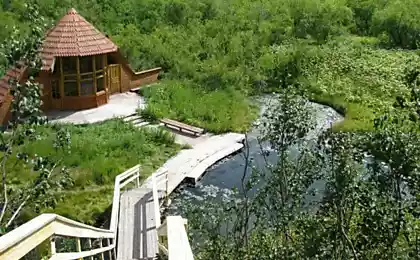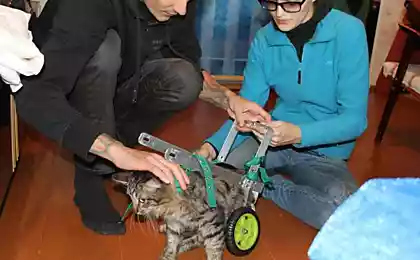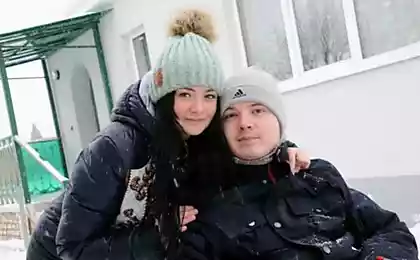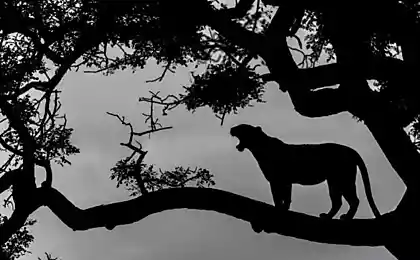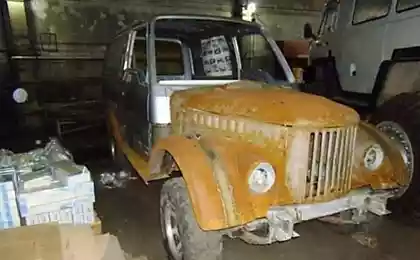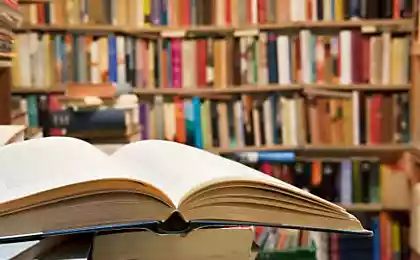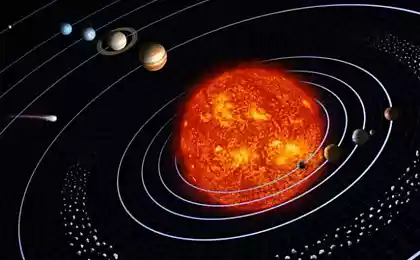640
Ecologist Artyom Akshentsev about the secret algae-extremophiles and expeditions to Kamchatka
In ninth grade I realized that absolutely everything in the world is interconnected, and set a task to find out how and why. Originally, I was going to devote his life to physics, even qualified in the relevant Summer School. There I talked with professors from the physics Department of Moscow state University and understand that all is very good, but not that. The way to solve who held me, the problems I found in the environment.
The earth can be compared to a spaceship. And humanity like a team that comes into the cabin, sees a lot of flashing lights and thinks: "Cool, disco!". To associate these signals with the fact that they are caused, helps system dynamics — a mix between ecology, Economics and mathematics. For example, we examine the level of fish in the sea off the coast of Kamchatka. People buy a new fishing trawls, equipment, but at one point, the fish ends. Why? Using system dynamics to build all the relationships and draw conclusions. This mechanism helps to learn from history so as not to step on the same rake. Even more: it allows us to build models of events which have not happened yet. System dynamics is one of the areas that is on my mind.
Within a hundred years humanity collapses in any scenario
I close ecologists inspired by the idea of sustainable development. For the first time on the world stage about the concept began in 1972 after the publication of the report "Limits to growth", on which prominent scientists worked on the grant of the club of Rome. This is very remarkable social organization. It brings together the powerful and, thanks to their financial assistance grants at the global research. Their goal is to get to the truth, no matter what it will be. Now, scientists have built a very sophisticated computer model. Their goal was to predict what will become of humanity if one is mindful of global trends: population growth, industrialization, depletion of natural resources, pollution of the environment. Studies have shown that within 100 years humanity collapses in all cases (and variants development model represented a lot).
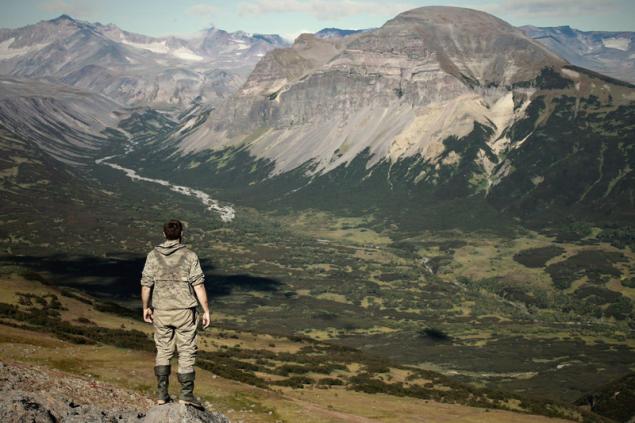
The main environmental problem today is not the plastic waste and global warming. This soil degradation and overpopulation. We are with you enough food, but 4 billion people going to bed on an empty stomach. Just think — that's more than half the world's population. And the situation is getting worse, despite the development of technologies to obtain higher yields per hectare of land. The fact that the "Golden billion" does not have problems, is because they feel other.
But back to overpopulation. Once the West had high mortality and high fertility rates, then the mortality rate has decreased (thanks to medicine development), and the birth rate remained at the same level. This "population peak" came just at the discovery of the New world — the "surplus" of people were pushed out of social pressure there. Social institutions got time to "unwind" and fertility with mortality came about on one level. Social institutions here I mean public education and promotion of the rights and freedoms of women. When a woman understands that there is an alternative that does not have a lifetime to sit at home and bear children, only then the birth rate begins to decline. And this alternative really should be the woman interesting. Here we are and helps education giving to people thousands of possibilities. And Yes, if you think about the war as that might reduce the birth rate, then you're dead wrong. War really could seriously reduce the population, but only in ancient times, when people was not enough.
And now look at the modern world, specifically in developing countries. The death rate is falling, because from the West here comes the medicine, but the birth rate remains high. And there is "another America" to defuse the situation. Social institutions, educational strategies with great difficulty make their way in the "traditional society". Women continue all my life to have children and, if from-for illnesses of the 15 children up to reproductive age lived out 1-2, but now live all 15. Just think, when our parents were born, the Earth was less than half of people. What will happen when we grow old?
At first glance it seems that between the birth control and the environment there is no connection. But also soil degradation, and water pollution, and waste problem — it's all about what we have on Earth too much. The pessimists are predicting bad, and optimists say that technological breakthrough will allow you to find a solution. I feel that the answer is somewhere in the middle.
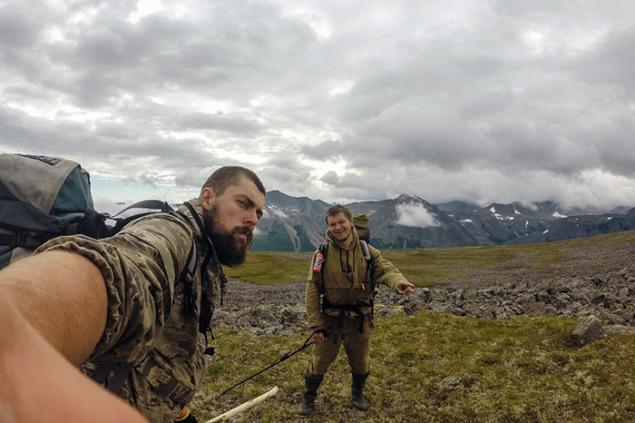
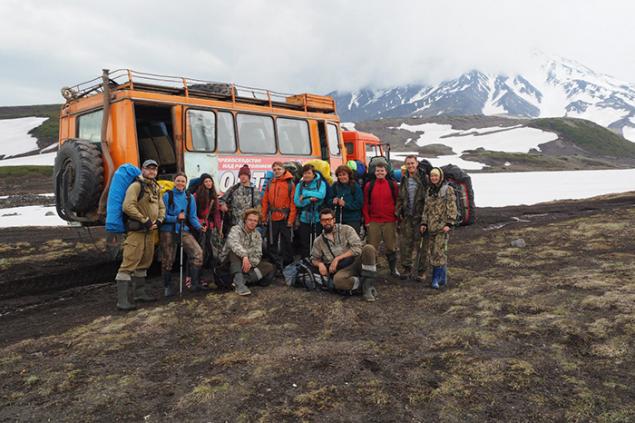
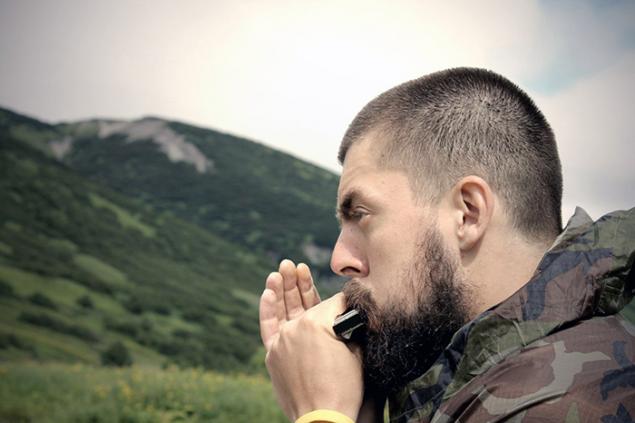
Technological innovation, of course, can and will alleviate the situation. For example, the economist Jeremy Rifkin sees an alternative and the output is in active development and application of 3D printing. Following in his vision in the future we'll print all of it. As for the production of the same parts on a 3D printer now requires 10 times less resources than its industrial production. If a 3D printer will be extended, we will be able inexpensively to get specific and we need the thing that immediately will greatly reduce the load on the ecosystem. Not to mention about the concept of turning homes into independent energy sources. In Europe (particularly the Netherlands and Germany), the popular zero home, they have a minimal environmental impact and energy consumption almost go to zero. If, for example, at this home there is a drain from the roof, there is a small Dynamo-machine, which produces electricity for the light bulbs in the toilet. Or you wash your hands in the sink in the kitchen, and the water enters the side of the toilet. Solid savings and optimization! The development of science and technology will allow to go further. We stock high-performance home (high efficiency) wind turbine, solar panels, maybe even a geothermal generator, and voila, our house is not just consumes no energy from outside, and produces it himself and is willing to share. But again, it bears repeating that no technological solution without the participation of social institutions will not save the situation. Will facilitate, but will not save.
It is clear that one of the two States, environmental problems can not be solved. Only United, we can move things off dead center. And while the leaders of the developed countries continue to gather annually at the world summit on sustainable development — three or four people on a jet aircraft and to discuss the problems. People are looking for immediate benefits, without thinking about the future.
From the third year, I was fascinated by Hydrobiology. Today my area of research — the study of extremophiles — organisms living in extreme conditions. Concretely, I do thermophilic aquatic species that live in the geysers or their effluents. It turned out that my object of study (the so-called cyanobacteria) is found on the Kamchatka Peninsula and loves the water temperature from 50 to 65 degrees.
We ran in trying to understand how thermophilic aquatic organisms survive in environments in which conventional protein denatures. Why is it so important to some algae (cyanobacteria)? The fact that they contain the substance known in medicine as adaptogens. Now these substances can be found in pharmacies in the form of biological additives such as extract of Eleutherococcus, ginseng, Rhodiola. Adaptogens allow the person to survive and to adapt to improper to his environment. In properties they are similar to stimulants but do not have negative effects: after the peak shape is not coming decline, the body gradually returns to its normal state. In addition, adaptogens of my algae provide a much easier to survive the lack of oxygen (hypoxia). These properties represent a huge opportunity, if the dream — up to manufacture special ointments and pills that increase the survival of people of extreme professions (firefighters, police, etc.).
Disparate software objects, of course, interesting, but let me create the spot, which will come practicing ecologists and tell them what is happening in the world
Be the first to adaptogenic properties of substances that produce algae, extremophiles, spoke Marcel Lefebvre, when making a speech to NATO in the 60-ies. After some time his work was classified, but they knew the scientists in the Soviet Union. Our compatriots picked up the theme and created their own working group, headed by my supervisor Grigory M. Barenboim. Active work was continued for about 10 years, but the Soviet Union collapsed, funding dried up, and it was shelved. The secrecy was removed only at the beginning of the two thousandth.
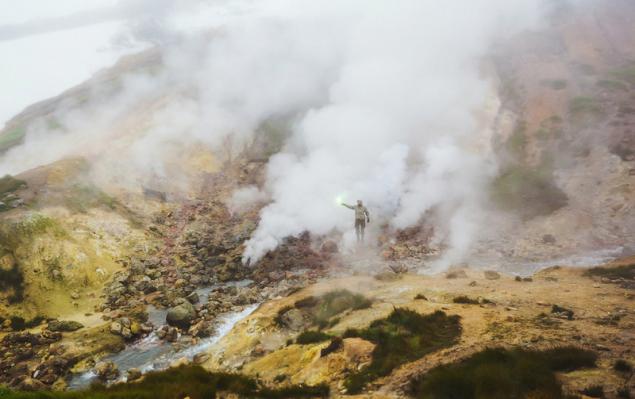
I'm crushing old records, laboratory notebooks of the French and Soviet scientists looking for publications on this topic, while studying not only adaptogene properties of algae and their ecology. To do this go to Kamchatka, sampled, describe the sources, re-map habitat and habitat describe the species diversity of algae: the last time such research was carried out in the Soviet years. Selected and the mass of the sample is about 5 liters of algae Bank, which turns out research amount of extract. Oh, and then I do research on mice. We check their stamina and resistance to stress factors, when they are under the influence of adaptogens of the cyanobacteria, and compare with the values of the control group, which the impact were not exposed. My task is to repeat all the Soviet experiments, but on modern hardware, and to show that the extract exerts a certain effect in a certain percentage on such bodies. Meanwhile, working on her PhD.
With all this, I am sure that one issue cannot be dealt with in a long time. The view is literally getting "tired". In science, I would like to work in one area of seven to ten years, and then look for new areas of interest. Most likely it will be just the serious pursuit of sustainable development and system dynamics.
When I was studying at the environmental Department, I realized that a holistic picture of the world I have not made up. Disparate software objects, of course, interesting, give a basis, but let me create the spot, which will come practicing ecologists and tell them what is happening in the world. So in 2010, the Summer school of "Russian reporter", which later became just Summer School, a project of EKOS. If students receive information about the subject only in the University, this is not enough. It is important to exchange experiences with people from the outside.
In addition to the General expansion of horizons each year "EKOS" is engaged in a specific task. For example, this year we dealt with environmental infographics and together with the workshop design Summer School created a training manual for system dynamics — we are currently negotiating with publishers about his publications. This discipline is not yet taught, but it can safely be brought up to speed on sustainable development: there is nothing that develops systemic thinking.
Agree that it's great when a biologist reads books on physics: the world is integral and necessary to perceive it holistically, otherwise it will turn out that you took the puzzle, but have collected only the pieces of red
There is another important aspect of my life. Once at my house out of space for books. Just like that. They no longer fit in the cabinets, on tables, even on the floor of the box is no longer saved. For the most part it was a non-fiction book. I thought, why not create a popular science library. My suggestion resonated with the guys from Summer School that helped to realize this idea. Agree, it's great when a biologist reads books on physics: the world is integral and necessary to perceive it holistically, otherwise it will turn out that you took the puzzle, but picked up only the pieces red. The study of related fields broadens the mind, and you get an idea what's going on in other fronts of science. Very soon our First popular science library marks a year.
We call popularizers of science hosted lectures and popular scientific debate. About them we can mention particularly. The essence of debate is to give participants the opportunity to debate on a topic and, however, to tell them how to properly build your speech. To confront the representatives of pseudoscience (which is the fate of all scientists-popularizers), it is necessary to be able to defend its position. If you don't know how, you turn into a sorcerer, which is something incomprehensible and can't talk about it in accessible language. Our audience is young scientists and senior students, but often come and adults from completely different areas.
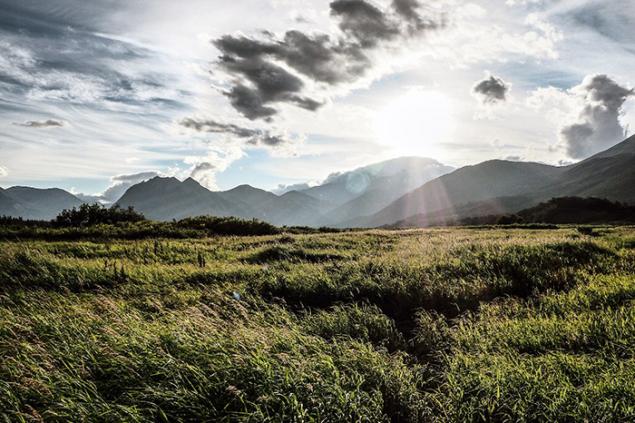
Finally, another project that I manage — a popular science expedition Russian Travel Geek. I do research in Kamchatka for five years. The first three years I had the funding, but the moment came when the money ran out, and I began to seek a way out. Last year my friends and I started a project on a crowdfunding platform planeta.ru. We collected 130 000 rubles for the organization of the expedition, which has found 7 new groups of thermal springs — lit "dark" hitherto region on the map. But I felt it was wrong to collect money in this way again. Then came the idea to create a club, and combine a scientific and tourist activities. We are a group with backpacks walking in the most beautiful places of Kamchatka, in the evenings around the campfire participants listen to popular science lectures on biology, botany, Ethnography and parallel scientific we take samples, then to study them in Moscow. A symbiosis between tourists and scientists. With contributions by tourists part of the funds goes to pay for roads for a scientist, and he, in return, shows them places not to go with any tour company.
Of course, at first I had doubts: I'll be poking around in puddles, collecting material, and tourists will go somewhere. But the first expedition has shown that people are all very interesting, and they are ready to be actively involved. In addition, when a person is literally ripped from the familiar environment, the brain starts to work actively and it is easier to absorb new information.
At the same time we walk on such places, where untrained people will not do. Just in the summer of 2015, one of the participants, a young man, was weak, and after the first day of the journey, it became clear that he will not pass the entire route. I had to leave the band to his friend and the second conductor RTG and return tourist back to the people. After that, catching up with the group, I stomped back on the night of the forest, and even ran away from the bear. I'm used to Kamchatka, and she (hopefully) got used to me. But those who were there for the first time, you need to be prepared mentally and physically. With every candidate, our team conducts interviews: it is important to understand, survive or not. Because the load is not simple: first, climb to the pass, then descend with him, stormed the river, go through the swamp, up in the woods, then make their way through the dense Bush — all in one day. I plan to further develop Russian Travel Geek. My goal is to create an entire expedition party, which campaigns brings not only breathtaking pictures but also new knowledge and samples.
Now the scientific community is experiencing a terrible stress. If the guard receives 50 000 rubles, and researcher of 15 thousand, the latter concludes that society on his work to care. When two other researcher are fighting over that one surpassed the other, receiving a salary increase of 5000 rubles, which is sad. Many who lights up your own business, go abroad. I too was invited in Yellowstone right after University, but I decided to stay. Although there often arises the feeling you're banging your head against the wall, but when I succeed, you're experiencing real elation.published
P. S. And remember, only by changing their consumption — together we change the world! © Join us at Facebook , Vkontakte, Odnoklassniki
Source: theoryandpractice.ru/posts/11787-ashkintcev
The earth can be compared to a spaceship. And humanity like a team that comes into the cabin, sees a lot of flashing lights and thinks: "Cool, disco!". To associate these signals with the fact that they are caused, helps system dynamics — a mix between ecology, Economics and mathematics. For example, we examine the level of fish in the sea off the coast of Kamchatka. People buy a new fishing trawls, equipment, but at one point, the fish ends. Why? Using system dynamics to build all the relationships and draw conclusions. This mechanism helps to learn from history so as not to step on the same rake. Even more: it allows us to build models of events which have not happened yet. System dynamics is one of the areas that is on my mind.
Within a hundred years humanity collapses in any scenario
I close ecologists inspired by the idea of sustainable development. For the first time on the world stage about the concept began in 1972 after the publication of the report "Limits to growth", on which prominent scientists worked on the grant of the club of Rome. This is very remarkable social organization. It brings together the powerful and, thanks to their financial assistance grants at the global research. Their goal is to get to the truth, no matter what it will be. Now, scientists have built a very sophisticated computer model. Their goal was to predict what will become of humanity if one is mindful of global trends: population growth, industrialization, depletion of natural resources, pollution of the environment. Studies have shown that within 100 years humanity collapses in all cases (and variants development model represented a lot).

The main environmental problem today is not the plastic waste and global warming. This soil degradation and overpopulation. We are with you enough food, but 4 billion people going to bed on an empty stomach. Just think — that's more than half the world's population. And the situation is getting worse, despite the development of technologies to obtain higher yields per hectare of land. The fact that the "Golden billion" does not have problems, is because they feel other.
But back to overpopulation. Once the West had high mortality and high fertility rates, then the mortality rate has decreased (thanks to medicine development), and the birth rate remained at the same level. This "population peak" came just at the discovery of the New world — the "surplus" of people were pushed out of social pressure there. Social institutions got time to "unwind" and fertility with mortality came about on one level. Social institutions here I mean public education and promotion of the rights and freedoms of women. When a woman understands that there is an alternative that does not have a lifetime to sit at home and bear children, only then the birth rate begins to decline. And this alternative really should be the woman interesting. Here we are and helps education giving to people thousands of possibilities. And Yes, if you think about the war as that might reduce the birth rate, then you're dead wrong. War really could seriously reduce the population, but only in ancient times, when people was not enough.
And now look at the modern world, specifically in developing countries. The death rate is falling, because from the West here comes the medicine, but the birth rate remains high. And there is "another America" to defuse the situation. Social institutions, educational strategies with great difficulty make their way in the "traditional society". Women continue all my life to have children and, if from-for illnesses of the 15 children up to reproductive age lived out 1-2, but now live all 15. Just think, when our parents were born, the Earth was less than half of people. What will happen when we grow old?
At first glance it seems that between the birth control and the environment there is no connection. But also soil degradation, and water pollution, and waste problem — it's all about what we have on Earth too much. The pessimists are predicting bad, and optimists say that technological breakthrough will allow you to find a solution. I feel that the answer is somewhere in the middle.



Technological innovation, of course, can and will alleviate the situation. For example, the economist Jeremy Rifkin sees an alternative and the output is in active development and application of 3D printing. Following in his vision in the future we'll print all of it. As for the production of the same parts on a 3D printer now requires 10 times less resources than its industrial production. If a 3D printer will be extended, we will be able inexpensively to get specific and we need the thing that immediately will greatly reduce the load on the ecosystem. Not to mention about the concept of turning homes into independent energy sources. In Europe (particularly the Netherlands and Germany), the popular zero home, they have a minimal environmental impact and energy consumption almost go to zero. If, for example, at this home there is a drain from the roof, there is a small Dynamo-machine, which produces electricity for the light bulbs in the toilet. Or you wash your hands in the sink in the kitchen, and the water enters the side of the toilet. Solid savings and optimization! The development of science and technology will allow to go further. We stock high-performance home (high efficiency) wind turbine, solar panels, maybe even a geothermal generator, and voila, our house is not just consumes no energy from outside, and produces it himself and is willing to share. But again, it bears repeating that no technological solution without the participation of social institutions will not save the situation. Will facilitate, but will not save.
It is clear that one of the two States, environmental problems can not be solved. Only United, we can move things off dead center. And while the leaders of the developed countries continue to gather annually at the world summit on sustainable development — three or four people on a jet aircraft and to discuss the problems. People are looking for immediate benefits, without thinking about the future.
From the third year, I was fascinated by Hydrobiology. Today my area of research — the study of extremophiles — organisms living in extreme conditions. Concretely, I do thermophilic aquatic species that live in the geysers or their effluents. It turned out that my object of study (the so-called cyanobacteria) is found on the Kamchatka Peninsula and loves the water temperature from 50 to 65 degrees.
We ran in trying to understand how thermophilic aquatic organisms survive in environments in which conventional protein denatures. Why is it so important to some algae (cyanobacteria)? The fact that they contain the substance known in medicine as adaptogens. Now these substances can be found in pharmacies in the form of biological additives such as extract of Eleutherococcus, ginseng, Rhodiola. Adaptogens allow the person to survive and to adapt to improper to his environment. In properties they are similar to stimulants but do not have negative effects: after the peak shape is not coming decline, the body gradually returns to its normal state. In addition, adaptogens of my algae provide a much easier to survive the lack of oxygen (hypoxia). These properties represent a huge opportunity, if the dream — up to manufacture special ointments and pills that increase the survival of people of extreme professions (firefighters, police, etc.).
Disparate software objects, of course, interesting, but let me create the spot, which will come practicing ecologists and tell them what is happening in the world
Be the first to adaptogenic properties of substances that produce algae, extremophiles, spoke Marcel Lefebvre, when making a speech to NATO in the 60-ies. After some time his work was classified, but they knew the scientists in the Soviet Union. Our compatriots picked up the theme and created their own working group, headed by my supervisor Grigory M. Barenboim. Active work was continued for about 10 years, but the Soviet Union collapsed, funding dried up, and it was shelved. The secrecy was removed only at the beginning of the two thousandth.

I'm crushing old records, laboratory notebooks of the French and Soviet scientists looking for publications on this topic, while studying not only adaptogene properties of algae and their ecology. To do this go to Kamchatka, sampled, describe the sources, re-map habitat and habitat describe the species diversity of algae: the last time such research was carried out in the Soviet years. Selected and the mass of the sample is about 5 liters of algae Bank, which turns out research amount of extract. Oh, and then I do research on mice. We check their stamina and resistance to stress factors, when they are under the influence of adaptogens of the cyanobacteria, and compare with the values of the control group, which the impact were not exposed. My task is to repeat all the Soviet experiments, but on modern hardware, and to show that the extract exerts a certain effect in a certain percentage on such bodies. Meanwhile, working on her PhD.
With all this, I am sure that one issue cannot be dealt with in a long time. The view is literally getting "tired". In science, I would like to work in one area of seven to ten years, and then look for new areas of interest. Most likely it will be just the serious pursuit of sustainable development and system dynamics.
When I was studying at the environmental Department, I realized that a holistic picture of the world I have not made up. Disparate software objects, of course, interesting, give a basis, but let me create the spot, which will come practicing ecologists and tell them what is happening in the world. So in 2010, the Summer school of "Russian reporter", which later became just Summer School, a project of EKOS. If students receive information about the subject only in the University, this is not enough. It is important to exchange experiences with people from the outside.
In addition to the General expansion of horizons each year "EKOS" is engaged in a specific task. For example, this year we dealt with environmental infographics and together with the workshop design Summer School created a training manual for system dynamics — we are currently negotiating with publishers about his publications. This discipline is not yet taught, but it can safely be brought up to speed on sustainable development: there is nothing that develops systemic thinking.
Agree that it's great when a biologist reads books on physics: the world is integral and necessary to perceive it holistically, otherwise it will turn out that you took the puzzle, but have collected only the pieces of red
There is another important aspect of my life. Once at my house out of space for books. Just like that. They no longer fit in the cabinets, on tables, even on the floor of the box is no longer saved. For the most part it was a non-fiction book. I thought, why not create a popular science library. My suggestion resonated with the guys from Summer School that helped to realize this idea. Agree, it's great when a biologist reads books on physics: the world is integral and necessary to perceive it holistically, otherwise it will turn out that you took the puzzle, but picked up only the pieces red. The study of related fields broadens the mind, and you get an idea what's going on in other fronts of science. Very soon our First popular science library marks a year.
We call popularizers of science hosted lectures and popular scientific debate. About them we can mention particularly. The essence of debate is to give participants the opportunity to debate on a topic and, however, to tell them how to properly build your speech. To confront the representatives of pseudoscience (which is the fate of all scientists-popularizers), it is necessary to be able to defend its position. If you don't know how, you turn into a sorcerer, which is something incomprehensible and can't talk about it in accessible language. Our audience is young scientists and senior students, but often come and adults from completely different areas.

Finally, another project that I manage — a popular science expedition Russian Travel Geek. I do research in Kamchatka for five years. The first three years I had the funding, but the moment came when the money ran out, and I began to seek a way out. Last year my friends and I started a project on a crowdfunding platform planeta.ru. We collected 130 000 rubles for the organization of the expedition, which has found 7 new groups of thermal springs — lit "dark" hitherto region on the map. But I felt it was wrong to collect money in this way again. Then came the idea to create a club, and combine a scientific and tourist activities. We are a group with backpacks walking in the most beautiful places of Kamchatka, in the evenings around the campfire participants listen to popular science lectures on biology, botany, Ethnography and parallel scientific we take samples, then to study them in Moscow. A symbiosis between tourists and scientists. With contributions by tourists part of the funds goes to pay for roads for a scientist, and he, in return, shows them places not to go with any tour company.
Of course, at first I had doubts: I'll be poking around in puddles, collecting material, and tourists will go somewhere. But the first expedition has shown that people are all very interesting, and they are ready to be actively involved. In addition, when a person is literally ripped from the familiar environment, the brain starts to work actively and it is easier to absorb new information.
At the same time we walk on such places, where untrained people will not do. Just in the summer of 2015, one of the participants, a young man, was weak, and after the first day of the journey, it became clear that he will not pass the entire route. I had to leave the band to his friend and the second conductor RTG and return tourist back to the people. After that, catching up with the group, I stomped back on the night of the forest, and even ran away from the bear. I'm used to Kamchatka, and she (hopefully) got used to me. But those who were there for the first time, you need to be prepared mentally and physically. With every candidate, our team conducts interviews: it is important to understand, survive or not. Because the load is not simple: first, climb to the pass, then descend with him, stormed the river, go through the swamp, up in the woods, then make their way through the dense Bush — all in one day. I plan to further develop Russian Travel Geek. My goal is to create an entire expedition party, which campaigns brings not only breathtaking pictures but also new knowledge and samples.
Now the scientific community is experiencing a terrible stress. If the guard receives 50 000 rubles, and researcher of 15 thousand, the latter concludes that society on his work to care. When two other researcher are fighting over that one surpassed the other, receiving a salary increase of 5000 rubles, which is sad. Many who lights up your own business, go abroad. I too was invited in Yellowstone right after University, but I decided to stay. Although there often arises the feeling you're banging your head against the wall, but when I succeed, you're experiencing real elation.published
P. S. And remember, only by changing their consumption — together we change the world! © Join us at Facebook , Vkontakte, Odnoklassniki
Source: theoryandpractice.ru/posts/11787-ashkintcev





